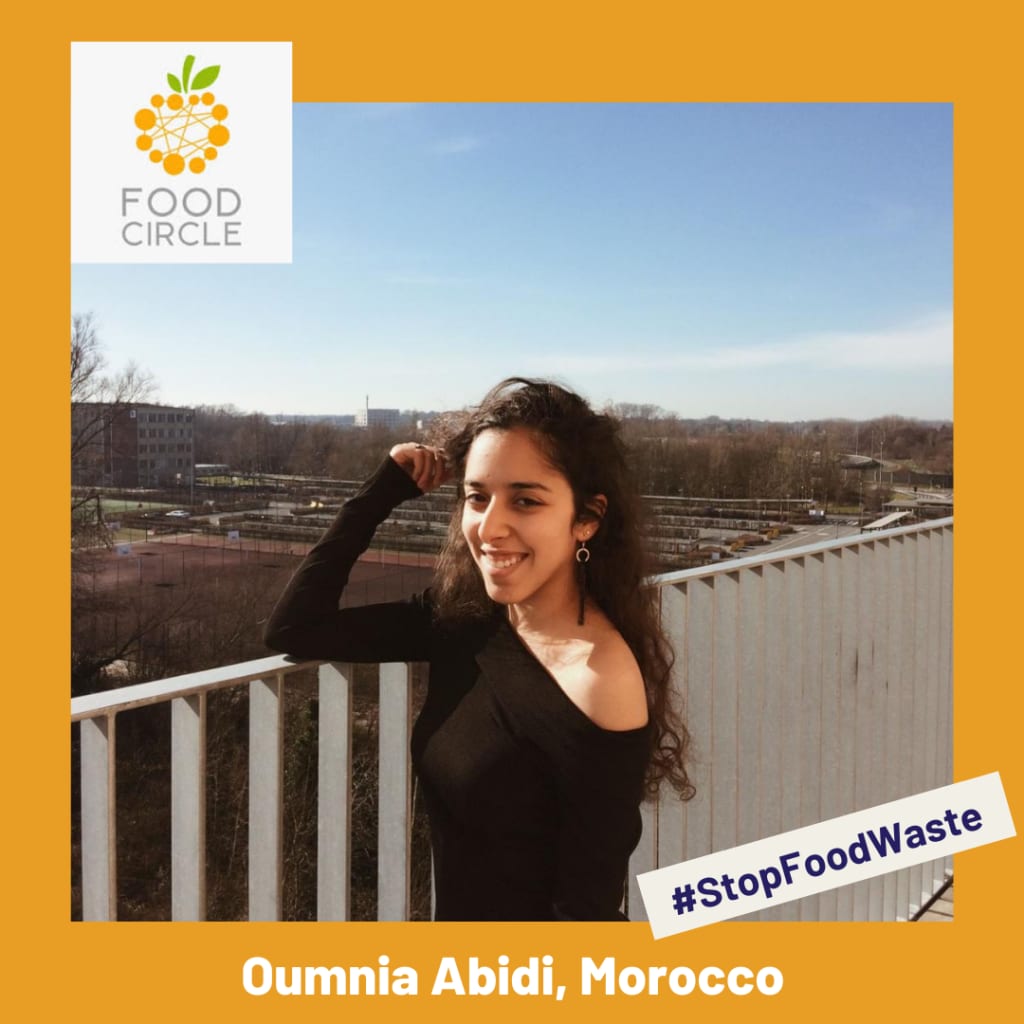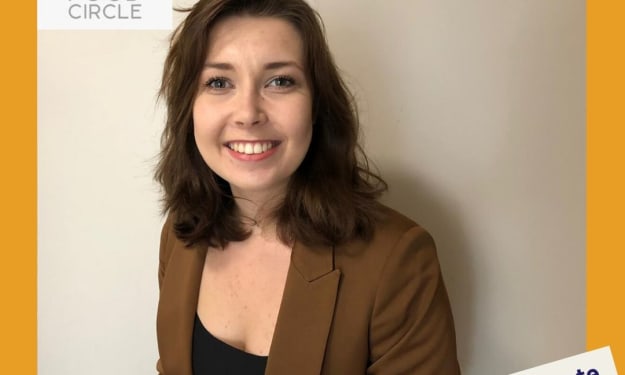Food Waste Around the World
Episode 15: Morocco

Hello Oumnia, welcome to this interview and thank you for participating in the project Food Waste Around the World. To start, could you tell me a little bit about yourself and where are you from?
Hi, my name is Oumnia, I’m 21 years old and I was born in Morocco. I’ve been living in France for a few years, and now I’m visiting Amsterdam.
Cool, I’m very glad to have you here. How is the food waste situation perceived in Morocco? Is it a big issue?
Well, it is a big issue. I found out that the average consumer in the MENA region (Middle East and North Africa) wastes about 250 kg of food per year, especially bread. Religiously, wasting food doesn’t look good, and people are aware of that. But in practice, people end up buying too much food and throwing it away.
Yeah, this happens often. You said that you have been living in France for a while, could you notice any differences there compared to Morocco?
In France, there is a massive production of food waste. People can afford more food, so there’s inherently more waste. There is also a difference in what is thrown away: for example, in Morocco, we mostly waste fruits and vegetables and industrial products rather than bread like in France.
Do you think that the waste is more at the consumer level or the production level?
Good question. There’s surely a massive food waste issue at both levels in France. In Morocco, agriculture is pretty much framed by the government so I think there would be more waste at the consumer level. I would say that because France produces more, there is more waste at both levels.
Interesting. Coming back to Morocco, who’s driving the attention to the food waste issue? Are there NGOs, small communities or other organizations?
There is the food bank, la Banque Alimentaire du Maroc which collects and distributes food to those in need collaborating with companies and NGOs.
There is also a big culture of local organizations and compatriot cooperations inside our Moroccan communities. People do these things because they want to help each other. For example, if a family is struggling, food and money are collected by their community to help them. But still, I can’t say that the food waste issue is a priority in the context of these local initiatives. So you will have a lot of organizations that help women start their businesses, educational initiatives, charities for orphanages, etc. Food waste is not highlighted because we are not at the stage of over-consuming as much as other countries. The Ministry of Agriculture, in collaboration with the FAO, is acting at the production level, to prevent and make sure that fewer products are wasted. On the contrary, I don’t see actions targeting the consumers specifically.
Interesting. Who’s more aware of the food waste issue? Younger or older people?
Probably young people waste more but at the same time, parents teach us about the value of food and to never take it for granted; so I believe young Moroccans probably waste less food then young people in another - perhaps more developed - country.
You mentioned that your government is acting to prevent the waste of food in agriculture. Do you think that it will do more in the future?
I hope to see more action at the consumer level. It’s necessary to increase awareness and sensibilize people by spreading information about food waste. There is a need for more initiatives, targeting not only food waste food reduction, but also food waste prevention.
I completely agree. At last, do you think that increasing the information about the food waste issue could be the next step to raise awareness between people?
Definitely. I think information has a huge impact, that’s why people should know the reality. Also, it’s important to take action through education; by shaping children and young people into responsible and action-driven adults who can influence societal change with their consumption practices.
Thank you very much Oumnia!
Thank you for having me!
Interviewer: Andrea Di Bernardo linkedin.com/in/andreadibernardo
Editor and writer: Andrea Di Bernardo
The organization mentioned in the interview: http://www.banquealimentaire.ma/media.html





Comments
There are no comments for this story
Be the first to respond and start the conversation.